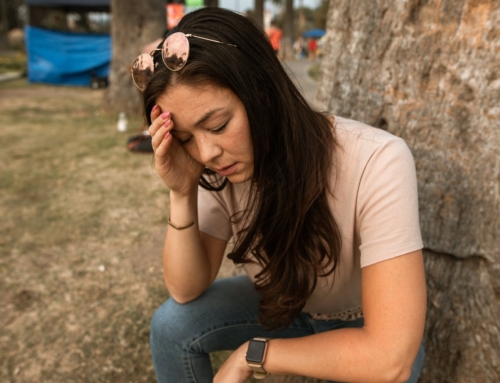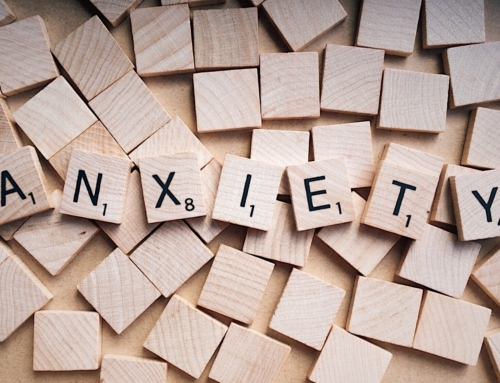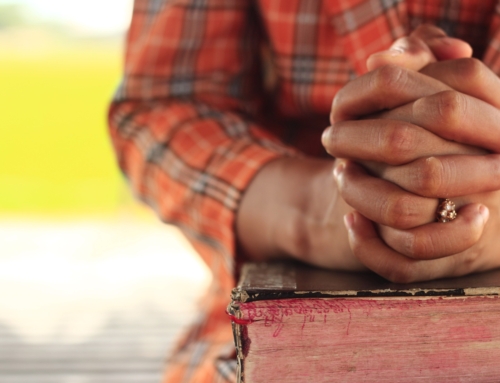Most people recognize the classic Obsessive-Compulsive Disorder (OCD) symptoms such as over-cleaning, extreme handwashing, and perfectly organized cabinets. However, there are lesser-known OCD symptoms that require attention because OCD, if left untreated, can hurt all areas of a person’s life.
What is OCD?
Most people have heard of OCD. Sometimes it is described in jest when someone is organized beyond the norm or insists on a sterile environment. However, Obsessive-Compulsive Disorder is a serious mental health condition that can derail a person’s life. The symptoms of which need to be addressed promptly and by a professional.
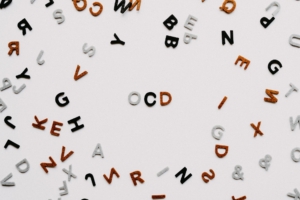 But what causes OCD behavior? Why do obsessive thoughts plague some people? It is thought that the amygdala, a small region in the brain that regulates the fight or flight response, is responsible for the thoughts and resulting actions of OCD. This almond-shaped area sits deep within the temporal lobe and manages emotions, including fear. It also processes memory. Other things such as trauma, grief, or another mental health disorder can result in OCD.
But what causes OCD behavior? Why do obsessive thoughts plague some people? It is thought that the amygdala, a small region in the brain that regulates the fight or flight response, is responsible for the thoughts and resulting actions of OCD. This almond-shaped area sits deep within the temporal lobe and manages emotions, including fear. It also processes memory. Other things such as trauma, grief, or another mental health disorder can result in OCD.
In someone with OCD, an intrusive thought emerges and creates a fear response. This anxiety heightens until the person reacts with a specific behavior. The brain then secretes hormones that give temporary relief and encase this relief sensation into the memory banks until the next obsessive thought comes along.
When the amygdala is working overtime, producing fear and chronic doubt, OCD behaviors occur. Treatment for OCD seeks to break this cycle by interrupting the resulting behaviors.
Common symptoms of OCD
Although the mental health condition is complex, researchers have narrowed the behaviors down to six primary categories. There can be various triggers, and two people with OCD may not be triggered in the same way, but the resulting compulsions are similar.
Cleaning and disinfecting
Every compulsion seems rooted in fear. The well-known OCD symptom of excessive cleaning trails back to a fear of contamination, whether germs, viruses, dirt, or bodily fluids. The fear of becoming contaminated and sick is severe enough, but sometimes the fear expounds to the sufferer, afraid they will infect others.
This symptom has significantly been seen during the pandemic as people are vigilant about cleanliness to avoid the COVID-19 virus. However, those with OCD take it farther, the fear gripping them and keeping them from everyday life.
They may overuse chemicals and disinfectants, use sanitizer several times in an hour, and wipe down every surface touched throughout the day. This symptom can also coexist with social anxiety because it is tough to socialize when you fear contamination.
Order and numbering
 The need for exactness, order, and symmetry is another common OCD symptom. Patients with this symptom have the overwhelming urge to place items in an order. Anything misplaced or out of order will create anxiety – as if life is outside of their control. This act gives the patient a sense of control, calming the mind. However, this, too, is a temporary relief.
The need for exactness, order, and symmetry is another common OCD symptom. Patients with this symptom have the overwhelming urge to place items in an order. Anything misplaced or out of order will create anxiety – as if life is outside of their control. This act gives the patient a sense of control, calming the mind. However, this, too, is a temporary relief.
Numbers give another sense of control. A number may stick out to a patient, and they will catch themselves doing tasks regarding that number. For example, a person with this form of OCD may focus on the number three and do things such as touching a wall three times before leaving a room or checking the light on the hot water tank three times to ensure there isn’t a leak.
They may also purchase items with that same number (three bottles of laundry detergent, three loaves of bread, etc.).
Hoarding
Hoarding can take many forms. Some people hoard collectibles, others hoard animals, and others accumulate random items that most people would consider junk or trash. People with severe hoarding will keep garbage, used paper plates, old appliances, and broken dishes.
Eventually, this collection of items begins to take a toll on the person’s mental and physical health. The home may be so cluttered that no one can safely move about in some instances. Rodents and bugs can infest the house as it is difficult to exterminate due to the clutter. The risk of fire is more significant in a hoarder’s home.
Animal hoarders may board dozens of dogs, cats, small animals, birds, and reptiles. Although the person may love the animals with a fierce love, their inability to care for a large group of animals affects the pets and their own lives as well. In many cases, the authorities are called due to the smell or the noise of the animals.
This behavior is highly isolating. The sufferer is embarrassed by their surroundings and may keep family and friends away – afraid someone may learn their secret.
Fear of loss and scarcity
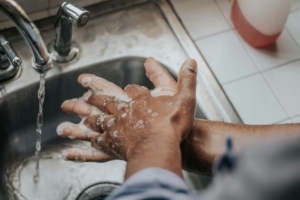 The fear of loss not only affects someone with the hoarder OCD symptom. Some people are overly concerned about the safety of their homes and family members. They may create imaginary scenarios where their family members are in danger if they do not answer their phones right away.
The fear of loss not only affects someone with the hoarder OCD symptom. Some people are overly concerned about the safety of their homes and family members. They may create imaginary scenarios where their family members are in danger if they do not answer their phones right away.
They may go to great extremes to protect their home with security systems and cameras. They will begin to panic if they cannot find their wallet or keys right away. It is this panic mode that OCD sufferers want to avoid, so they may create routines to bypass the sensation. However, in the back of their mind is a constant worry. The Bible tells us, “Do not be afraid of the terrors of the night, nor the arrow that flies in the day.” (Psalms 91:5)
What of scarcity? People with this OCD symptom are always worried about whether they will always have enough food, enough clothing, and enough items to get them through the direst of circumstances. Yet Jesus told us, “Seek the Kingdom of God above all else, and live righteously, and he will give you everything you need.” (Matthew 6:33).
Checking, double-checking, and triple-checking
Chronic doubt is a familiar sensation to someone with OCD. Their concern can cause them to double and triple-check things to ensure everything is safe. For example, after using the curling iron, a woman with OCD may check to make sure she unplugged the cord. However, before leaving the house, she may check again.
She might turn her car around halfway during her work commute to return home and check the cord a third time in severe cases. As soon as she sees the cord is unplugged, she is filled with relief. But, again, this is a temporary sensation.
Our memory banks hold onto these feelings of reassurance and will urge us to seek relief when confronted with the same scenario. Whether it is an appliance, a gas hot water tank, or the locks on the house, the vicious cycle will begin again.
Fear of losing control of themselves
 One of the most challenging OCD symptoms a person can face is the fear of losing control and inevitably hurting someone else. The mind is powerful, but not all our thoughts are good, which is why Paul in the Bible states, “Fix your thoughts on what is true, and honorable, and right, and pure, and lovely, and admirable. Think about things that are excellent and worthy of praise.” (Philippians 4:8).
One of the most challenging OCD symptoms a person can face is the fear of losing control and inevitably hurting someone else. The mind is powerful, but not all our thoughts are good, which is why Paul in the Bible states, “Fix your thoughts on what is true, and honorable, and right, and pure, and lovely, and admirable. Think about things that are excellent and worthy of praise.” (Philippians 4:8).
Horrible thoughts, unfamiliar voices, and graphic and violent images may enter the OCD sufferer’s mind. These constant thoughts may make the patient concerned that they might lose control and follow through to seek temporary relief.
It is critical that if you are experiencing these demonic thoughts, you should contact a Christian counselor right away who can help you manage this symptom. Although what flitters through your mind is evil, God created you in His image. Ask for help to view yourself as God views you.
Getting help
Whether obsessive thoughts and compulsions result from an overworked amygdala, childhood trauma, Post-Traumatic Stress Disorder, or something else entirely, the disorder cannot go untreated. Therapists have made great strides in breaking the cycle with scientific techniques. Reach out today to a Christian counselor to help manage your thoughts while growing in your faith with Christ as your ultimate Counselor. You can be set free.
“OCD”, Courtesy of Annie Spratt, Unsplash.com, CC0 License; “Cross at Sunset”, Courtesy of Samuel McGarrigle, Unsplash.com, CC0 License; “Hand Washing”, Courtesy of Mélissa Jeanty, Unsplash.com, CC0 License; “Freedom”, Courtesy of Fuu J, Unsplash.com, CC0 License




